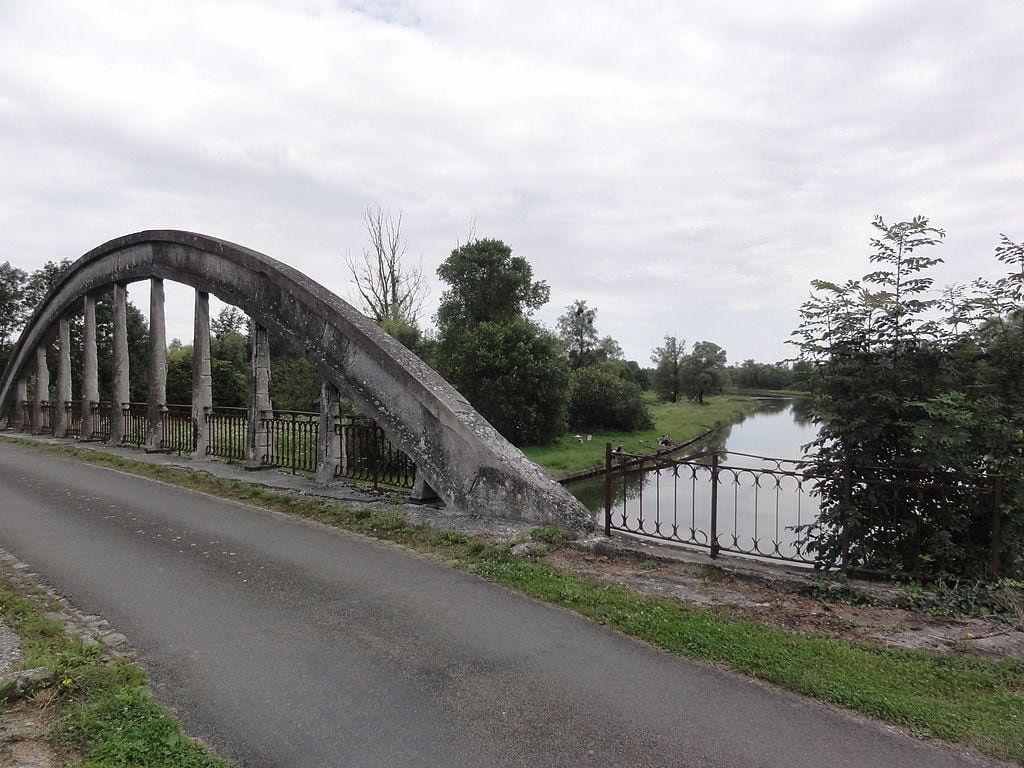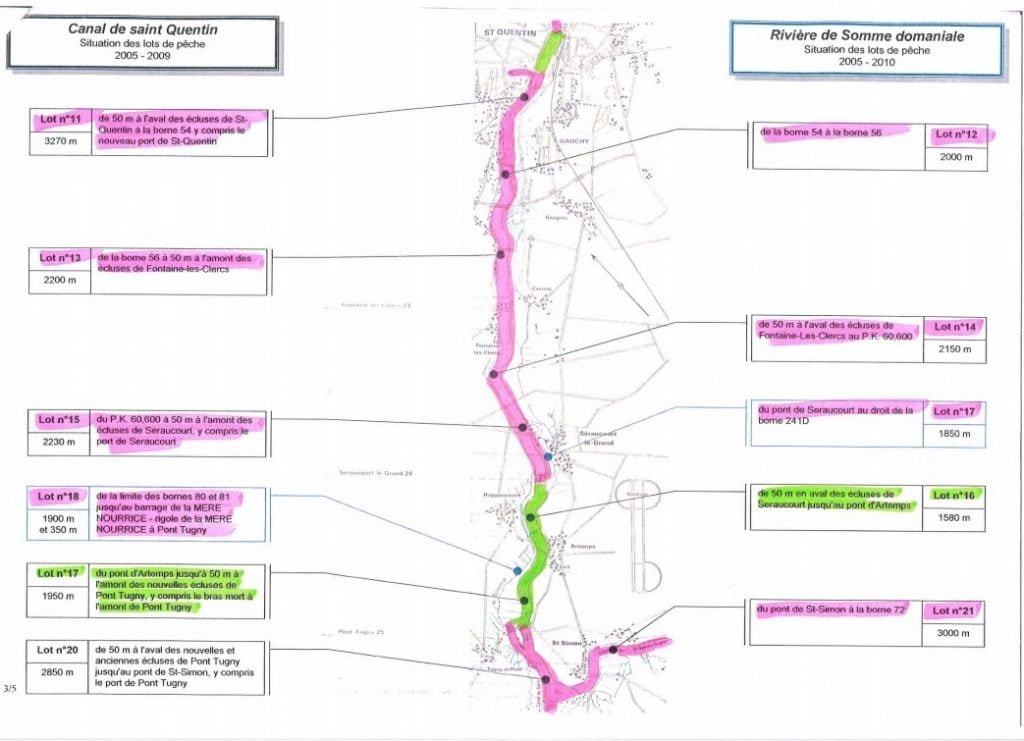Canal de Saint-Quentin – Parcours Saint-Quentin
Artemps France
SIZE
170 km
SWIMS
-
ANGLERS
-
STOCK
Good
CARP
45lb +
DIFFICULTY
4/5
LAKE MAP
No
NIGHT FISHING
Yes
Canal de Saint-Quentin – Parcours Saint-Quentin
The night carp course of Saint-Quentin - Partially is located on the Canal de Saint-Quentin, in the department of Aisne (02), in the Hauts-de-France region. The 92.5 km long Saint-Quentin canal connects the Oise, the Somme and the Scheldt and connects the Paris Basin, the North of France and Belgium. The particularity of the channel is that it has no current. Cut in reaches, it can have different and variable fish populations depending on the time or year. Indeed, carp can change reaches through the locks. The bottoms are particularly flat and edge fishing should be favored on the one hand because most of the natural food is concentrated there, and on the other hand when navigation is regular, it is better to avoid fishing. in the center of the canal… The nature of the bottoms of a canal will depend on the substrate in which it was dug, but you should know that, except recent cleaning, mud may be present over most of the width. The natural food is mainly composed of larvae and insects, although anodont mussels can also be found on some and some American crayfish when there are grassland tasks that should be fished as a priority. The uniformity of the banks is actually an asset in the sense that any anomaly or structure along the banks attracts carp and should guide you in choosing a position.
Facilities
- Bait Available
- Tackle Hire
- Expert Guide
- Bait Boats
- Rowing Boats
- Lockbox
- Disabled Access
- -
- -
- -
- -
- -
- -
- -
- Toilets
- Food
- Showers
- Hot Water
- BBQ
- Car Parking
- Dogs Allowed
- -
- -
- -
- -
- -
- -
- -
Specifications
Use:
Type:
Size:
Swims
Max Anglers:
Stock:
Carp Weight:
Difficulty:
Night Fishing:
Fishing
River
170 km
-
-
Good
45lb +
4/5
Yes
Rules
Only baits of vegetable origin and those whose composition includes vegetable flour (boilies / pellets) are authorized. In order to optimize controls, each fisherman sets up a light system to signal his presence. Provisions specific to the public fluvial domain: The lighting devices, intended to indicate the presence of each fisherman, must be switched off during navigation hours. Outside of navigation hours, the use of green or red lights is prohibited in order to avoid any confusion with the signal lights used in navigation. Night fishing is prohibited on loading / unloading sites and on boat mooring sites (river ports, quays, albeit dukes, pontoons, wharfs, etc.). In order to avoid any nuisance, only green biwys (*) and shelters are tolerated. The biwys must be equipped with light signaling devices in colors other than green and red. The installation of biwys on the public fluvial domain is authorized subject to not obstructing the passage of the personnel of Voies navigables de France, not obstructing the passage of the personnel responsible for enforcing the fishing police and not encroaching on the towpath. The sound level of the detectors is set to the minimum. The use of Back-Lead is mandatory in order not to cause interference with navigation and other uses of the water. The line open to night carp fishing in the department of Aisne is distributed as follows: 144 km of watercourse. 170 km of canals. 110 ha of water bodies.
-
Description
Canal de Saint-Quentin – Parcours Saint-Quentin
The night carp course of Saint-Quentin - Partially is located on the Canal de Saint-Quentin, in the department of Aisne (02), in the Hauts-de-France region. The 92.5 km long Saint-Quentin canal connects the Oise, the Somme and the Scheldt and connects the Paris Basin, the North of France and Belgium. The particularity of the channel is that it has no current. Cut in reaches, it can have different and variable fish populations depending on the time or year. Indeed, carp can change reaches through the locks. The bottoms are particularly flat and edge fishing should be favored on the one hand because most of the natural food is concentrated there, and on the other hand when navigation is regular, it is better to avoid fishing. in the center of the canal… The nature of the bottoms of a canal will depend on the substrate in which it was dug, but you should know that, except recent cleaning, mud may be present over most of the width. The natural food is mainly composed of larvae and insects, although anodont mussels can also be found on some and some American crayfish when there are grassland tasks that should be fished as a priority. The uniformity of the banks is actually an asset in the sense that any anomaly or structure along the banks attracts carp and should guide you in choosing a position.
-
Facilities
- Bait Available
- Tackle Hire
- Expert Guide
- Bait Boats
- Rowing Boats
- Lockbox
- Disabled Access
- -
- -
- -
- -
- -
- -
- -
- Toilets
- Food
- Showers
- Hot Water
- BBQ
- Car Parking
- Dogs Allowed
- -
- -
- -
- -
- -
- -
- -
-
Specifications
Use:
Type:
Size:
Swims
Max Anglers:
Stock:
Carp Weight:
Difficulty:
Night Fishing:
Fishing
River
170 km
-
-
Good
45lb
4/5
Yes
-
Rules
Only baits of vegetable origin and those whose composition includes vegetable flour (boilies / pellets) are authorized. In order to optimize controls, each fisherman sets up a light system to signal his presence. Provisions specific to the public fluvial domain: The lighting devices, intended to indicate the presence of each fisherman, must be switched off during navigation hours. Outside of navigation hours, the use of green or red lights is prohibited in order to avoid any confusion with the signal lights used in navigation. Night fishing is prohibited on loading / unloading sites and on boat mooring sites (river ports, quays, albeit dukes, pontoons, wharfs, etc.). In order to avoid any nuisance, only green biwys (*) and shelters are tolerated. The biwys must be equipped with light signaling devices in colors other than green and red. The installation of biwys on the public fluvial domain is authorized subject to not obstructing the passage of the personnel of Voies navigables de France, not obstructing the passage of the personnel responsible for enforcing the fishing police and not encroaching on the towpath. The sound level of the detectors is set to the minimum. The use of Back-Lead is mandatory in order not to cause interference with navigation and other uses of the water. The line open to night carp fishing in the department of Aisne is distributed as follows: 144 km of watercourse. 170 km of canals. 110 ha of water bodies.
-
Lake Map
Advice for fishing in France can be found HERE.

-
Lake Video
-
Location
Advice for fishing in France can be found HERE.
GPS:
Lat 49.766754150391
Lon 3.187782049179 -
Contact
-
Live Weather




